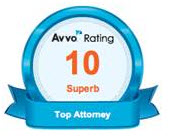Grinning and bearing it is not your only option when you are facing a debt crisis. In fact, it's very rarely even your best option. Working with a bankruptcy professional, you can find out both about bankruptcy options as well as other legal and financial remedies that could help you create a more stable financial future.
Find out about your debt relief options, including bankruptcy
How are contractor liens impacted by bankruptcy?
Contractors that perform work on your home can often have what is known as a mechanics' lien on the property. Imagine a contractor who does substantial work to renovate a homeowner's kitchen. This contractor might require some payment up front and take the rest of the payment later. But if the homeowner never pays, the contractor simply can't repossess the goods he or she sold. They have been customized and installed in the home.
What is the automatic stay?
The automatic stay is something that occurs when you file bankruptcy of any type. While it isn't fully comprehensive, the automatic stay is a powerful tool for those who are facing immediate debt crisis because it puts a stop to a number of collection activities while the bankruptcy proceeding takes place.
Tax debts and bankruptcy
Most California residents automatically assume that their tax debts are not dischargeable in bankruptcy. However, in certain circumstances, tax debts can actually be discharged. Usually, though, it is only in Chapter 7 proceedings that federal tax debt is included in the bankruptcy.
Considerations when your paycheck is reduced by creditors
The words "debtors' prison" might reasonably conjure up images of an historical anomaly and anachronism confined to European countries centuries ago.
Is all my debt dischargeable in a Chapter 7 bankruptcy filing?
The quick and definitive answer to the above-posed headline query is that not all debt qualifies for automatic erasure in a Chapter 7 bankruptcy filing.
Collectively, Americans inch toward $1 trillion in revolving debt
The research department at one of the nation's Federal Reserve banks recently culled through and analyzed what a media article on consumer debt calls "a huge data set" of credit report-related information. Reportedly, researchers scrutinized a full 5 percent of all credit reports in the country over a nearly 15-year period.
Chapter 7 bankruptcy overview
Chapter 7 bankruptcy is generally for those people who are not business owners. In other words, it is for a personal bankruptcy claim, not a business bankruptcy. There are several things to keep in mind if you want to file this type of bankruptcy.
Filing for Chapter 7 bankruptcy may be the answer
Filing Chapter 7 bankruptcy may be a good idea if you qualify. You must not make too much money per year of you won't qualify. The way it is calculated is that you take six months of earnings and compare it to the state of California's median income. Such things as wages, salaries, bonuses tips; all these qualify as income.
Knowing your income level crucial when filing for Chapter 7
There is a big difference between Chapter 7 bankruptcy and Chapter 13 bankruptcy. In Chapter 7, you do not have the ability to repay any of the debt that you have accrued and it is in very simple terms written off. Chapter 13 sees you as having a certain level of income or assets and you may be able to repay at least part of the debt. In the past, there really were no laws covering who could qualify for Chapter 7 as opposed to 13; it was left up to the judge in charge of your case.







